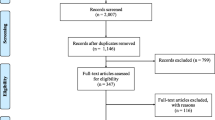Abstract
Objective To assess the prevalence of self-medication among adults in an urban setting and to identify any factors contributing to self-medication in relation to consumer characteristics. Setting The study was carried out in Kuala Lumpur, the capital of Malaysia. Methods A cross-sectional study using a self administered questionnaire including adults above 21 years old as an exit survey was conducted in Kuala Lumpur. Main outcome measures Number of medications taken in a day by participants, source of medication for the treatment of minor illnesses among participants, common illnesses chosen for self-medication by participants, and the sources of information of participants. Results Of 314 participants, 62.7% had taken at least one medication in the past week without prescription and 62.7% believed that over the counter medicines were just as effective as those prescribed by doctors. 69.4% would seek a healthcare professional’s advice before purchasing any medication and 86.9% would consult a pharmacist prior to buying medication from the pharmacy. Only 86% checked the expiry dates on medications and 54.5% reported keeping leftover medication. Conclusions Self-medication practice is prevalent in Kuala Lumpur but some practice might be harmful. Education on appropriate use of self-medication need to be emphasized in order to ensure quality use of medicines.
Similar content being viewed by others
References
WHO. The role of pharmacist in self-care and self-medication. Report of the 4th WHO Consultative Group on the role of pharmacist. The Hague, The Netherlands, 26–28 August 1998. WHO/Dap/98.13. World Health Organization, Geneva 1998.
World Self-Medication Industry. Available at http://www.wsmi.org/pdf/storyofselfcare_bdpage.pdf. Accessed 10 Feb 2011.
Wertheimer A, Seradell J. A discussion paper on self care and its implications for pharmacists. Pharm World Sci. 2008;30:309–15.
Pawaskar MD, Balkrishnan R. Switching from prescription to over-the-counter medications; a consumer and managed care perspective. Manag Care Interface. 2007;20(1):42–7.
Working group on drug classification: definition and criteria to apply to OTC drugs. Pan American Health Organization, regional office of the World Health Organisation. Available at http://www.paho.org/english/ad/ths/ev/CM-DefinitionandcriteriaforOTC.pdf. Accessed 10 Feb 2011.
Bradley C, Blenkinsopp A. Over the counter drugs: the future for self medication. BMJ. 1996;312:835–7.
Abosede OA. Self-medication: an important aspect of primary health care. Soc Sci Med. 1984;19:699–703.
Sample Size Calculator by Raosoft, Inc. Availabe at http://www.raosoft.com/samplesize.html.
Kaufman DW, Kelly JP, Rosenberg L, Anderson TE, Mitchell AA. Recent patterns of medication use in the ambulatory adult population of the United States. The slone survey. J Am Med Assoc. 2002; 287: 337–44.
Mitsi G, Jelastopulu E, Basiaris H, Skoutelis A, Gogos C. Patterns of antibiotic use among adults and parents in the community: a questionnaire-based survey in a Greek urban population. Int J Antimicrob Agents. 2005;25:439–43.
Yousef AM, Al-Bakri AG, Bustanji Y, Wazaify M. Self-medication patterns in Amman, Jordan. Pharm World Sci. 2008;30:24–30.
Suleman S, Katsela A, Mekonnen Z. Assessment of self-medication practices in Assendabo town, Jimma zone, southwestern Ethiopia. Res Social Adm Pharm. 2009;5:76–81.
British Market Research Bureau (BRMB). Everyday health care study of self-medication in Britain October 1997.
Chui WK, Li SC. Advice-giving on self-medication: perspectives of community pharmacists and consumers in Singapore. J Clin Pharm Ther. 2005;30:225–31.
Ministry of Health Malaysia: National Pharmaceutical Control Bureau, Ministry of Health Malaysia. [www.bpfk.gov.my].
Indermitte J, Reber D, Beutler M, Bruppacher R, Hersberger KE. Prevalence and patient awareness of selected potential drug interactions with self-medication. J Clin Pharm Ther. 2007;32:149–59.
Acknowledgments
The authors wish to thank all the participants who provided their valuable responses in answering to the questionnaire.
Funding
None.
Conflicts of interest
None.
Author information
Authors and Affiliations
Corresponding author
Rights and permissions
About this article
Cite this article
Hassali, M.A., Shafie, A.A., Al-Qazaz, H. et al. Self-medication practices among adult population attending community pharmacies in Malaysia: an exploratory study. Int J Clin Pharm 33, 794–799 (2011). https://doi.org/10.1007/s11096-011-9539-5
Received:
Accepted:
Published:
Issue Date:
DOI: https://doi.org/10.1007/s11096-011-9539-5




